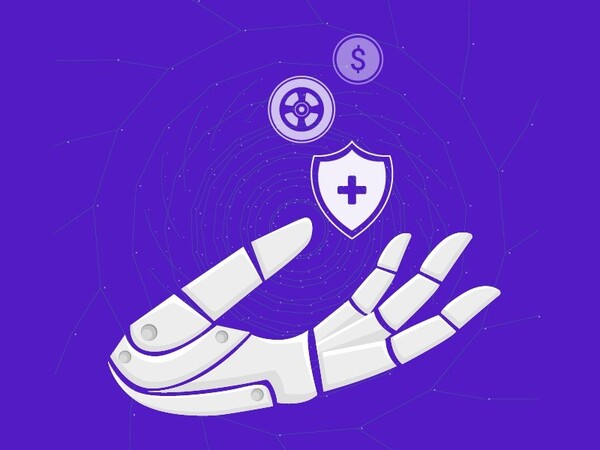Introduction
Like most successful small-business owners, you may be ambitious when it comes to new ideas and technologies to keep your business ahead of the curve. Emerging technologies really make a difference, especially when you jump on the bandwagon before it becomes mainstream. So after exploring a couple of cases for artificial intelligence, you’ll be ready to give-it-a-go.
There’s a lot of AI APIs available to help businesses enhance and augment in-house workflows, customer-facing services and much more. This also means that there is no need to build AI tools from the ground up, as you can tap into existing services that can be implemented almost immediately. We’re already seeing this happening in a major way, with everything from inventory management to customer support.
Artificial Intelligence (AI) has an ever-growing impact on companies of all sizes. And today, we’re going to take a look at the influence of AI on three industries we’ve randomly chosen – healthcare, automotive industry, and financial sector. AI tech isn’t just for enterprises with billion-dollar budgets. In fact, the SMB community is cutting costs and delivering awesome customer experiences with AI-powered apps.
Today’s Role of Artificial Intelligence in Business
Lots of companies, either service or customer-based, have already implemented AI to bring innovations to their services. AI is used in software development, so any company can employ a custom AI-powered system to level up their business.
The complex AI algorithm can be broken down into a simple structure – human + AI processed data = business value and innovations. AI is capable of analyzing huge amounts of data to anticipate particular outcomes, so it isn’t surprising that AI has found its usage in the healthcare, car industry, and finance sectors, where immense amounts of data need to be processed. Let’s get closer to the examples of how AI is changing the game.
Artificial Intelligence in Healthcare
AI is a major force for future medical advancements. Nowadays, it’s used not only in pilot projects. AI is widely used to store patient data or manage apps in the cloud, as well as to answer patient queries on any health topics via chatbots or other communication channels.
AI is the clear winner when it comes to data analysis. It helps to analyze the myriads of health-related issues as well as diagnose patients by scanning their faces, etc. Google Deepmind, an AI-based research company, and IBM (Watson Oncology) have been long working on AI-powered software solutions in this area. AI is only on its way to its peak, and within the next decade, AI-powered algorithms will take care of the tasks that used to require human intelligence.
Artificial Intelligence in Automotive Industry
Lots of car manufacturers, as well as taxi services (for example, Uber), have already invested billions into assisted driving and prototyping of fully-autonomous cars. Actually, autonomous cars are the brightest examples of Artificial Intelligence in the automotive industry.
The brightest example is, of course, Tesla is backing up its vehicles with AI-powered software solutions. All Tesla cars have all the hardware required for the full self-driving capability that is safer than that of a human driver. A powerful onboard computer runs a neural net for vision, sonar, and radar processing software powered by cameras and ultrasonic sensors.
With this state-of-the-art system, Tesla gets a full view of the world that a driver cannot access. Tesla vehicles can match the speed to traffic conditions, keep within a lane, change lanes without driver input, exit the freeway when approaching the destination, and self-park when there is a parking lot nearby. Powered by AI-based software, cars are getting smarter and smarter. Driverless vehicles are no longer the sort of stuff only found in sci-fi.
Artificial Intelligence in Financial Sector
Along with car manufacturers, AI is widely used in the financial industry to detect suspicious activities or fraud. AI-powered systems are trained to differentiate between fraudulent and non-fraudulent activities in any transaction.
Aside from fraud detection, AI is also used to predict any changes as well as improve the decisions made with them. Today, chatbots and other conversational interfaces can perform simple financial operations and keep track of the transaction history autonomously.
Summary
The day isn’t far away in the future when an AI-backed computer will be able to tackle any task that requires human intervention today. The role of AI is growing, and it’s already found its place in the healthcare, financial, and automotive industries.
SMBs, service-based companies, as well as their industrial counterparts, will go for AI to power up their mechanisms. The future for the companies that are fast to integrate AI into the underlying workflows and processes will be a bright one. Hurry up to jump onto the bandwagon before everyone gets an AI-powered app. Drop us a line to request a free estimate or just to find out more about AI.



